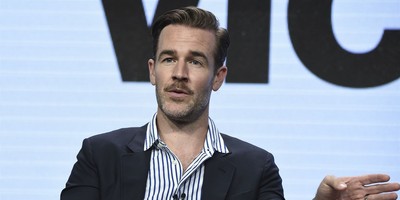WASHINGTON -- The most destructive gap for President Obama is not the Republican lead on the generic congressional ballot, or even a job disapproval that has surpassed approval -- it is the gap between aspiration and reality.
The Manhattan mosque controversy showed the problem in compressed form. First came the Obama of high-toned principle (largely the right principle, in my view). Then a politically motivated recalibration. Then a scrambling staff explanation. Then an embarrassed silence, since it is difficult to clarify the clarification of a clarification. Then the president's regretful assertion of "no regrets."
It was more than a lapse. From the firing of Shirley Sherrod, to the obsession with Fox News, to lashing the "professional left," the Obama administration engages in a daily hypocrisy. It attacks the sound and fury of the cable news cycle while being entirely captive to its rhythms. In the process, it often appears reactive, windblown and unprincipled.
This gap between ideals and practice is becoming a defining narrative of the administration. Obama once promised, for example, to end the "divisive food fight in Washington." Apparently there is an exception for sugary, frozen beverages. In his new stump speech, he says: "We're slipping and sliding and sweating, and the other side, the Republicans, they're standing there with their Slurpees watching us." In Seattle, the President of the United States pantomimed drinking a Slurpee to mock his opponents. A campaigner such as Ronald Reagan could draw political blood with a wink and a smile. Obama's partisan rhetoric manages to be prickly, mean-spirited and unfunny. On the campaign trail, he taunts and whines. He does not charm.
But this much can be said: The rhetoric fits the message. Having spent beyond the dreams of Franklin Roosevelt to produce a 9.5 percent unemployment rate, Obama has reached an ideological dead end. His natural policy inclination would be even more stimulus spending, now a political impossibility. So he is left with attacking Republicans. This is a natural political instinct. But it leaves Obama looking like any other beleaguered, partisan politician.
Recommended
The tensions accumulate. The candidate who pledged to reach across party lines passed his agenda in a steady march of party-line votes and strong-arm legislative maneuvers. The candidate who sought to transcend partisan divisions is viewed in a recent Democracy Corps poll as "too liberal" by 57 percent of likely voters. The candidate who said he would "fundamentally change the way Washington works" has seen public distrust of government grow to pre-French Revolutionary levels.
The failure to change, or even to challenge, the culture of Washington rankles on right and left. Here is Lawrence Lessig writing in The Nation: "Obama will leave the presidency, whether in 2013 or 2017, with Washington essentially intact and the movement he inspired betrayed."
The height of Obama's political fall is measured by how awkward the echoes of his past rhetoric now seem. When he said recently, "Let's reach for hope," it was indeed a stretch. It sounded like an aging pop singer, grown paunchy and out of tune, stumbling through an old favorite. Obama is pursued by the memories of his own promise.
Politicians have been known to say one thing and do another. And high ideals and high rhetoric always create the potential for hypocrisy. But the disappointment with Obama is especially acute. He won office by providing new voters with intoxicating hopes. America was tipsy with idealism -- resulting in a particularly difficult hangover. Few presidencies have been built so consciously or completely on an idealistic brand, with its own distinctive language and icons. But this "new kind of politics" has proved conventional in its conduct, predictable in its content and exceptional only for the depth of division it has inspired. The Obama administration is presented, not just with the prospect of electoral repudiation, but with a question: How will it adjust to the death of the belief that gave it birth?
For some, this is merely a confirmation of their pre-existing view of politics -- that idealism is a fraud, that rhetorical inspiration is a con. It is true that many politicians do not improve upon closer acquaintance -- that no man is a hero to his valet. But a nation of valets would lose its capacity for great purposes. So it should be a source of sadness that Obama, for many, has become a source of cynicism.
All politicians fall -- but not from such a height.























Join the conversation as a VIP Member